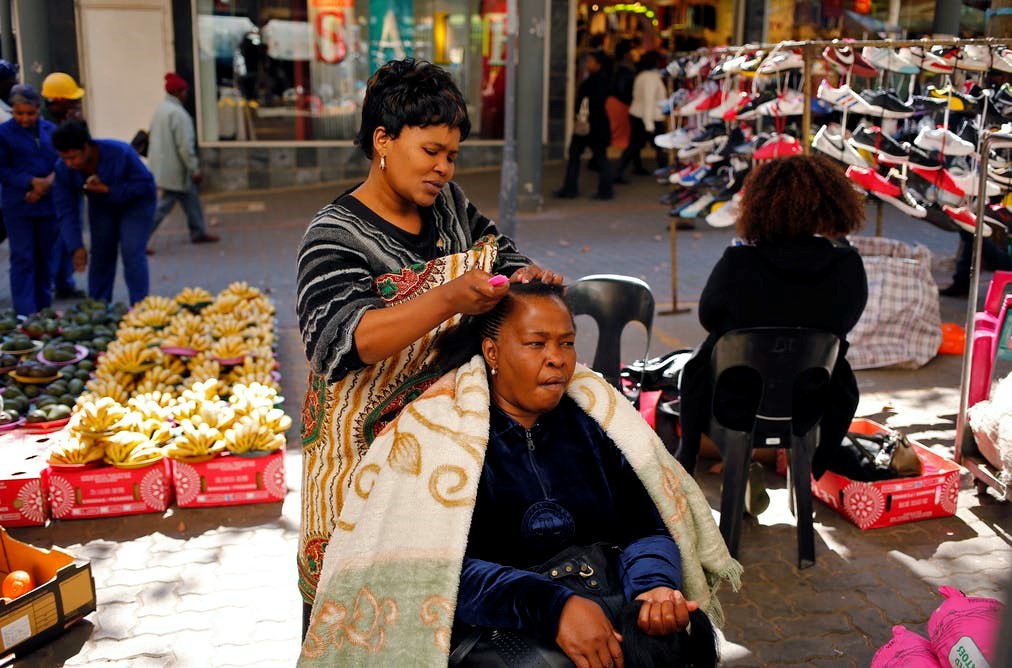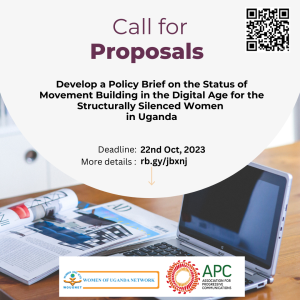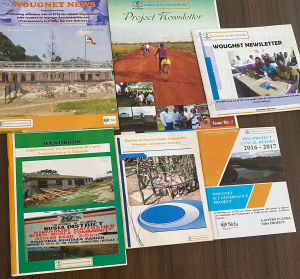While the impact of COVID-19 outbreak on businesses varies depending on the industry, there’s one group that has been hit particularly hard in the world; women-owned small-scale businesses.
A recent survey carried out by the U.S. Chamber of Commerce indicates how businesses have been impacted by the pandemic. For instance, the number of female-owned the business has fallen from 60% in January to 47% in July 2020 and male-owned business from 67% to 62% during the same period of time. This means females fell by 13 points and males by 5 points. According to International Tarde Centre, more than 90% of women entrepreneurs reported a decrease in sales during the pandemic and have less than three months of cash flow to survive compared to 52% of men-led companies.
Such figures imply that women entrepreneurswere most affected by the stay-at-home orders issued early in the pandemic. After the closure of ‘’non-essential’ businesses (owned by most women), women were left with no option but to stay home and concentrate on their families. Due to the increased domestic responsibilities like homeschooling, child care, and household chores, they would not get time to do other works which could earn them a living. To add to that, research conducted by the Facebook survey/inc.com, found out that31% of women had spent more time on domestic tasks since the pandemic started, compared to 26% of men. This affected their ability to focus on work thus a decrease in their growth.
As a result, women-led businesses were disproportionately hurt by the stifling effects of shutdowns, and more likely to close than those run by men.
In Uganda, it is reported that 34.8% of businesses are owned by women which makes East Africa the top-performing country in Africa in terms of women entrepreneurship. It is also a country with the highest percentage of female entrepreneurs with 90.5 percent of women borrowing and saving money to start-up small profitable businesses with as little as what their pocket can afford. These small profitable businesses include; Salons, Fast food restaurant, Selling Clean Water, Tomato farming, Poultry farming, second-hand clothes, hawking, Photocopying, and Printing services.
It was unfortunate that on 30th March 2020, the president of Uganda, his excellency Yoweri Kaguta Museveni imposed a lockdown due to the pandemic that hit the world. This included the closure of non-essential businesses (owned by most women) apart from that selling foodstuff who were allowed to operate.
From that day, this has affected business people especially women since they carry the highest percentage of entrepreneurism in the country. It has been hard for men to regain their businesses, but harder for women because of unavoidable circumstances such as; businesses slowing down, some closing, and others have been forced to change businesses.
Joyce Atuhaire, the director of operations Agro Tourism Association said, “the pandemic affected women differently, some have lost businesses, others started new ones especially those dealing with perishable products due to lack of market.
The following were also various ways how women entrepreneurs were affected by the COVID-19 pandemic:
· Most female entrepreneurs feel that increased family care demands have reduced their ability to focus their attention on their businesses, hurting their ability to generate income. For instance, women employees, especially during required home-based work were more inclined to resign due to increasing childcare needs.
· The restrictions in the movement have led to more incidences of intimate partner and family violence, hurting the productivity of firms as they struggle to deal with its mental and economic impact on their work and employees.
· In addition, companies do not know how to address the mental health and well-being of employees during the pandemic. More than one-third of women-owned businesses have expressed increased anxiety due to the uncertainty of COVID 19 and concerns on how to support the health and wellbeing of employees.
Together, these factors could affect women’s opportunities to cope with the crisis and widen differences in health and capital when the pandemic fades. Restrictions in the movement have increased family violence thus affecting both the physical and mental health of family members especially women. These differences affect the performance and focus of women at work(business) and slow down the economic recovery.
Deepening economic gaps caused by the COVID-19 pandemic between men and women will jeopardize a fast return from a recession through huge gaps in productivity. The pervasive inequality could further widen due to the impact of the current crisis. However, there are some solutions to that. These include;
· Support home-based work, care options, and flexible work schedules. Recruit, retain, and promote women during and after the crisis to prevent loss of talent.
· Enable women entrepreneurs access to working capital and insurance products It’s this time of the year that Women Rights Organizations look back and take pride in the efforts they have labored to improve the quality of life of women and at the same time challenge the rest of the world to acknowledge that Women Rights are also Human Rights. March 8th is not only a thrilling day for women all over the world to celebrate their accomplishments, it’s a prominent time for organizations like Women of Uganda Network (WOUGNET) to commemorate the social, economic, cultural, and political triumphs they haveregistered in promoting gender equality using ICTs especially in the difficult times of the COVID-19.
Just like any other contagion, the unpredicted outbreak of COVID 19 caught Uganda and other countries around the world by surprise and thus greatly affected the well being of many people especially women and other vulnerable groups. This global crisis and notifiable disease inevitably forced the Ugandan government to employ stringent measures to contain it and these included lockdown, social, physical distancing and night curfew which significantly disrupted economic activity. As a result, many people experienced a reduction in their daily incomes due to loss of jobs, reduced flow of remittances, and loss of market for their products. In addition, Ugandans that depend on the government’s free health services due to poverty experienced limited access to health care.
While gender is oftentimes under looked in the face of epidemics, women and girls are most affected and this has the same for the COVID-19 pandemic. According to a technical brief titled “Gendered Dimensions of The Economic Impacts of Covid-19 In Uganda”, it was reported that women and girls are bound to be left out during COVID- 19 responses. The brief further indicated that during the COVID-19 containment, men were the most dominant under the essential workers’ category that was allowed to continue with work during the total lockdown while most women stayed home. All this and more left women in a state of desolation and vulnerability. Uganda’s experience has only been a reflection of other countries elsewhere.
In order to address the impact of COVID-19 on women and girls, Women’s Rights Organizations worldwide have embraced ICT as a tool to empower women during the COVID-19 crisis. For instance, on the International Day of the Girl that was celebrated in October 2020, International Telecommunication Union (ITU), World Intellectual Property Organization (WIPO) and United Nations Educational, Scientific and Cultural Organization (UNESCO) collaborated with the Permanent Mission of Bulgaria to host a virtual event on ”Gender Equality in Science, Technology and Innovation: Driving Sustainable Future during COVID-19 and beyond”. The discussion focused on the progress achieved in empowering women and girls and the hindrances that affect women in accessing ICTs.
It’s against this background that WOUGNET enhanced the use of ICTs to address the plight of women during the distressing time of COVID-19. WOUGNET has been predominant and vibrant in mitigating the effects of COVID-19 by venturing into various mechanisms of ICTs as a tool for controlling the spread of the disease. For example, as a way of addressing the disinformation on COVID-19 that was causing a lot of panic and fear, WOUGNET made use of its SMS platform called “M-Omulimisa” to share information with rural women in remote areas that barely had access to internet platforms and televisions that constantly shared information about the disease. The platform therefore played a vital role in addressing the myth about the disease. For instance, in March, 2020, the daily monitor reported that the late Pastor Augustine Yiga of Revival Church Kawaala commonly known as “Abizaayo was arrested for uttering false information that COVID-19 that there was no COVID-19 in Africa.
Furthermore, WOUGNET has also been using radio campaigns in districts like Apac and Agago to create awareness about the rising cases of gender-based violence (both physical and online violence) as a result of the COVID 19 restrictions. This enabled women in these districts to learn more abought their digital rights in the online space and also got information on what to do and where to report in case they fall victim. This in accordance with WOUGNET’s report on domestic violence in the COVID 19 context, it was stated that violence against women and girls had become more persuasive due to the outbreak of COVID-19. This was associated with stringent measures (like curfew and limited movement) enacted by the government which exposed women more to abuse because of spending more hours under one roof with the perpetrators of violence.
In order to respond to the aggressive working conditions like working remotely that arose due to the outbreak of COVID-19 as a way of complying with the Standard Operating Procedures (SOP) issued by the Ministry of Health, WOUGNET in partnership with the Women Peace and Humanitarian fund built the capacity of the staff of its 25 member organizations to enable them to adapt to the new working environment. This was achieved by equipping them with variousICT skills likevideo conferencing tools such as zoom, google meet, google hangout calls to enable them work from home. These initiatives in a long run trickled down to the women beneficiaries through service delivery and thus improving their wellbeing throughout during the lockdown.
WOUGNET has also conducted and published several research studies during the COVID-19 pandemic as a way of creating awareness of the negative experiences of women and advocating for their rights. Furthermore, it used the findings to influence policy decisions on ICT and gender-based violence both on a national and international level. In accordance with this fact, WOUGNET submitted a report to the UN special rapporteur on the violence against women (VAW) in the context of COVID-19. The report boldly indicated that VAW had increased due to the unforeseen outbreak of COVID-19. WOUGNET further tasked the government, civil society, and development partners, and all stakeholders to enhance the involvement of male allies in the fight against VAW. An article published by WOUGNET clearly illustrated the challenges that women face in accessing the internet during the COVID-19 pandemic. It stated that the gender digital divide increased during the COVID-19 pandemic thus limiting many women from working remotely and also indicated that most women depended on their husbands for data. In this article, WOUGNET advocated for women by tasking the government to scrap off the OTT tax to enhance internet access for women.
In the quest to enhance the wellbeing of women during the upsetting time of COVID-19, WOUGNET chose to challenge the hindrances of COVID-19, by embracing the sense of agency to use ICTs during the COVID-19 pandemic where ICTs have become very crucial.
As we continue to celebrate this amazing month for women, WOUGNET commends all Women’s Rights Organizations, private sectors, and government institutions that have played a critical role in using ICTs to address the plight of women amidst the unprecedented face of COVID-19. We, therefore, #ChooseToChallenge policymakers and all stakeholders to integrate gender in all policies, laws, and measures geared at addressing the impact of COVID-19 and future pandemics.
If we are to #BuildBackBetter fromthe impact of COVID-19, anenabling environment should be created for women to participate fully in the decision-making processes regarding ICT for development. This is because they understand better the challenges, they have experienced during the COVID-19 pandemic where ICTs and the internet have become a meaningfully indispensable part of life.
Written by, Nampiima Maria Goretti
Program Assistant Volunteer, Information Sharing, and Networking.






